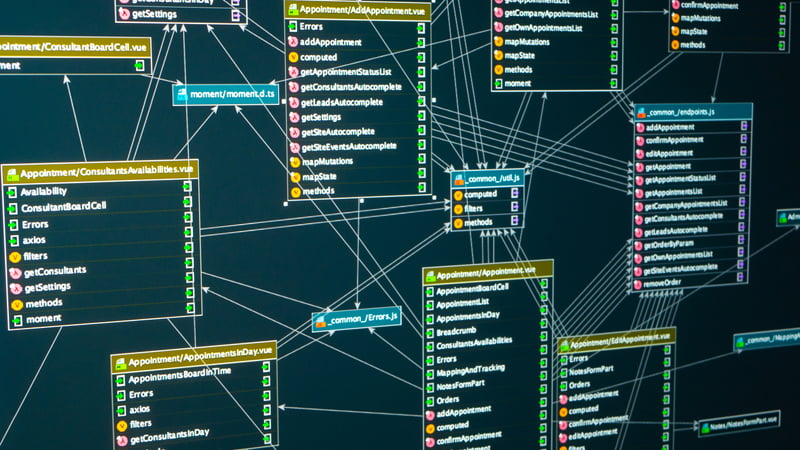
Entity SEO is a specialized form of search engine optimization which focuses on optimizing websites and content related to topics and keywords. Entity SEO allows for a greater understanding of user intent, the creation of relevant content, and an increase in website positions on search engine results pages. Ignoring entities is a mistake when it comes to optimizing for search engines. They are the building blocks of search engine optimization, and understanding them is essential for success. Entities are the people, places, things, and concepts that form a website's content. Examples include companies, locations, people, products, and artworks. Knowing the connections between different objects on a website can help increase a site's visibility in the query results, especially when the objects have the highest salience for user intent in their original search query.
Content that improves domain authority is made up of a multitude of objects and understanding how they interact with each other is critical for successful entity-based SEO. For example, if an entity such as “dog food” appears multiple times on a website but never in relation to another entity such as “pet store” then it will be difficult for search bots to understand the context of the page and rank it appropriately. By understanding entities and how they relate to each other within a website’s content, marketing professionals can create more meaningful connections between related topics via rich snippets for example, which will help improve a website's visibility on search engine results pages.
In the simplest terms, entities are people, places or things. Google's Knowledge Graph is an entity graph, demonstrating their adoption of semantic search - or search for entities. As one way to introduce entities, this was a first step in that direction. Entity-based SEO takes into account the significance of "entity search" for indexing by search engines. It can be simply put that this is a more precise way for bots to interpret user intent and add on additional verified sources in order to respond to a search query.
 For the past 20 years, the Internet, its search engines, and users have all struggled with unstructured data - information that does not have a defined structure. Consequently, search engines could recognize patterns on webpages (keywords), but not really adding meaning to them.
For the past 20 years, the Internet, its search engines, and users have all struggled with unstructured data - information that does not have a defined structure. Consequently, search engines could recognize patterns on webpages (keywords), but not really adding meaning to them.
Semantic Search organizes data by classifying each piece of information as an entity, which is known as structured data. Retail product data involves a huge amount of unstructured data. Structured data lets retailers and manufacturers give very precise product information to search bots to recognize, categorize, and connect as confirmed data.
Semantic search will optimize more than just retail products; it will also cover other kinds of data. Schema.org offers a variety of schema types which provide the technical language needed to develop a data-structured web with individual identifiers that are decipherable by machines. Structured machine-readable data is more accurate and can be checked against other sources of linked entity data that have unique identifiers across the internet.
Though entities have been around for awhile, it's only recently that people are aware of them and utilizing them. Entities are essentially objects or concepts that can be identified and tracked by search engines and bots. They can be anything from people to places to products, and they are used to help search engines better understand the content of webpages and provide more accurate results.
Google has filed several patents related to entities, which give us an insight into how they might use them in their algorithms. These patents suggest that entities could be used to identify relationships between different pieces of content on the web, as well as helping search engines better understand user intent when searching for something specific. This could potentially lead to more relevant results being returned in search results, as well as improved accuracy in its natural language processing capabilities. Google initially relied heavily on keywords to determine the relevance of a web page to a search query. However, as search engine algorithms became more sophisticated, they began to recognize that keywords alone could not accurately assess the content of a page. This is because many words have multiple meanings and can be interpreted differently depending on context. For example, when searching for “Apple”, one might be looking for information about the technology company or the fruit.
To address this issue, the top search engines shifted its focus from keywords to entities. Entities are concepts that are represented in a structured way and can be identified by their properties such as name, type, and relationships with other entities. By understanding these properties, search engines can better understand the meaning behind a query and provide more accurate results more closely aligned with user intent. Additionally, entities are language-independent which makes them useful for international searches where there may be different words used to describe the same concept in different languages.
Let’s circle back quickly to the question: what is an entity? Entities in Google’s Knowledge Graph are semantic data objects (schema types), each with a unique identifier. They are a collection of properties based on the attributes of the real world topics they represent, and they are also links representing the topic and its relationship to other entities.
For those professional marketers in the industry for some time can remember when Google purchased Metaweb in July 2010, with the Freebase database having 12 million entities. Within 2 short years, by June 2012, Google’s Knowledge Graph was tracking 500 million entities and over 3.5 billion relationships between those entities, a 4000% increase!
Adding machine-readable structured data via rich snippets for example to the Web will significantly improve a search engine’s capability to “understand” vs. “index” data, and it will provide two significant breakthroughs for getting accurate answers to user questions when delivering results:
1. Machines will have a much better method for understanding user intent
2. Machines will be able to draw from very large databases of structured data to match up the most reliable and accurate answer for the user i.e., verified structured data
3. Improved user experience with more relevant content delivered.
Indexing Keywords Vs. Natural Language Understanding
Marketing professionals, semantic SEO strategists, and search engines are all in a transitional phase — from “assisting websites to get their unstructured data indexed” to ”assisting websites by providing machine-readable structured data on the Web.”
For an illustration and further examination, we can look at the limited view of the Schema Type hierarchy for a “Place” and its variations, like that of a Courthouse compared to a Law Firm or a Hospital. It won't take long to see that entity extraction is necessary for semantic searching. Consequently, an entity symbolizes the possibility of being seen on search results in the future! This entails establishing authority, gaining trust, and optimizing visibility.
Making Your Business Data & Content Visible With Semantic Markup
Structuring your business data and digital content with semantic markup will make them accessible to search engines. Your law firm's business data can include, but is not limited to, rich media video content, reviews and ratings, location data, specialty details, special offers, service info, FAQs and more. By using Schema.org's schema and adding semantic markup to your site, you can make your law firm's information readable by search engines, web programs, navigation systems, tablets, phones, Apple maps, SIRI, Yelp maps and Linked Open Data. Semantic markup presents your law firm data as tacos to the search engines — they love tacos!
The benefits of entity SEO has grown out of how people perform searches today, with voice search, personalized search results, and mobile search all playing a role in content discoverability and how it's presented.
Numerous advantages come from using entity-based SEO. To begin with, understanding the intent behind users' queries helps to provide more relevant search content for them. Identifying the elements of a user’s query will enable search engines to deliver more precise and personalized results. As an added benefit, entity SEO can increase click-through rates by providing more detailed insights into the user's needs. Achieving entity SEO will help draw more qualified organic traffic to your website by making it easier to see in search engine results pages when relevant topics or queries are used. All of these benefits make entity-based SEO an essential part of any successful digital SEO strategy.
Search engine crawlers understand the data thoroughly and are able to collate it for an improved user experience in their search engine results pages. Structured data can help make your search engine results more relevant, which is likely to raise your click-through rate and domain authority.
Adopting semantic search helps to optimize your results on Google's Knowledge Graph by making use of markup data to tailor the answers to user queries across different devices. Semantic markup, rich snippets, and entity SEO is all about the details of structured data, this solid SEO strategy is very process oriented and requires a stead-fast diligent approach to reach full potential.
Until then, you should keep concentrating on keywords as semantic marking becomes more widespread. In order to be prepared for future SERP visibility, it's important to understand and make use of semantic search and correctly formatted markup.
It's obvious that search engines need content that can be read by machines in order to give users more accurate results when they search. As people are gravitating towards smartphones and tablets instead of desktops and laptops, providing personalized results quickly is essential. Therefore, being knowledgeable about semantic technology and entity search is vital for SEOs. Let's set up a meeting to explore how Sydekar can assist you with progressing your semantic search endeavors.
Want to know more? Feel free to set up a free consultation here:
